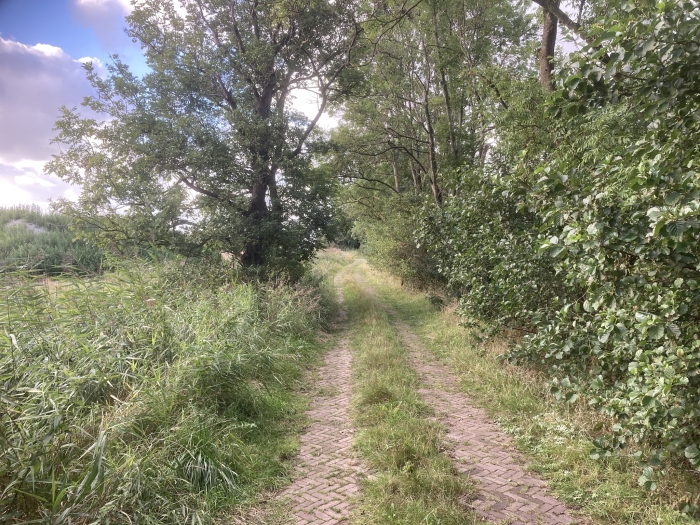Grey Poplar
(Populus ×canescens)
Grey Poplar (Populus ×canescens)
/
/

© Andre Hosper
CC BY 4.0
Image By:
© Andre Hosper
Recorded By:
Copyright:
CC BY 4.0
Copyright Notice:
Photo by: © Andre Hosper | License Type: CC BY 4.0 | License URL: http://creativecommons.org/licenses/by/4.0/ | Uploader: ahospers | Publisher: iNaturalist |






















Estimated Native Range
Summary
Populus × canescens, commonly known as Grey Poplar, is a hybrid tree resulting from the cross between Populus alba (White Poplar) and Populus tremula (European Aspen). It is a fast-growing, deciduous tree that can reach up to 130 feet in height with a trunk diameter exceeding 5 feet. The Grey Poplar is characterized by its broad, rounded crown and bark that is pale grey and fissured. Its leaves are diamond-shaped to triangular, with a green-grey color and a white, felt-like underside that becomes more pronounced with age.
Grey Poplar is valued for its rapid growth and ability to thrive in a variety of soil conditions, making it suitable for windbreaks and screening. It is also used for timber and pulp production. In cultivation, it prefers full sun to part shade and can tolerate both moist and dry soils, though it performs best in well-drained loamy soils. Despite its benefits, Grey Poplar can be potentially invasive outside its native range, and its aggressive root system may cause problems with underground utilities and foundations. It is advisable to plant it with caution and ensure it is not listed as invasive in your region.CC BY-SA 4.0
Grey Poplar is valued for its rapid growth and ability to thrive in a variety of soil conditions, making it suitable for windbreaks and screening. It is also used for timber and pulp production. In cultivation, it prefers full sun to part shade and can tolerate both moist and dry soils, though it performs best in well-drained loamy soils. Despite its benefits, Grey Poplar can be potentially invasive outside its native range, and its aggressive root system may cause problems with underground utilities and foundations. It is advisable to plant it with caution and ensure it is not listed as invasive in your region.CC BY-SA 4.0
Plant Description
- Plant Type: Tree
- Height: 30-70 feet
- Width: 20-30 feet
- Growth Rate: Rapid
- Flower Color: N/A
- Flowering Season: Spring
- Leaf Retention: Deciduous
Growth Requirements
- Sun: Full Sun
- Water: Medium, High
- Drainage: Medium, Fast
Common Uses
Erosion Control
Natural Habitat
Grey Poplar is a hybrid of species native to Europe and Western Asia, including riparian areas, floodplains, and open woodlands
Other Names
Common Names: Gray Poplar
Scientific Names: , Populus ×canescens, Leuce ×canescens, Octima ×canescens, Populus alba subsp. canescens, Populus alba subsp. canescens, Populus alba var. canescens, Populus alba × tremula, Populus bachofenii, Populus canescens var. denudata
GBIF Accepted Name: